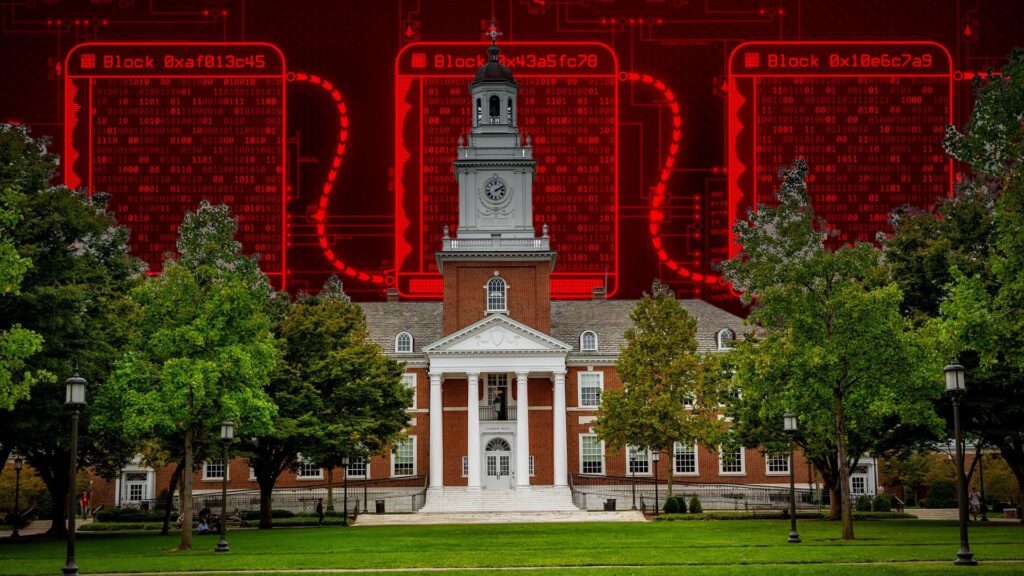
Universities and academic institutions are the keepers of invaluable data, gathered over countless years of dedicated research. But as these centers of learning venture further into the digital realm, they increasingly grapple with the limitations and risks posed by traditional, centralized data storage models.
Academic data is alarmingly susceptible to the vulnerabilities of centralized storage models. Findings from a recent survey have brought this to light, revealing that a significant percentage of Americans have at some point lost information due to issues like deleted hyperlinks or inaccessible online accounts.
Decentralization to the Rescue
In response to these concerns, a number of prominent educational institutions have begun to explore and adopt decentralized data storage models. Among them are the Massachusetts Institute of Technology (MIT), Harvard University, the University of California, Berkeley, Stanford University, and the University of South Carolina. Their aim is to secure, preserve, and archive their critical data using the transformative technology of blockchain.
One salient example of this shift is MIT’s three-year project to examine how decentralized technology can support its Open Learning programs, including “OpenCourseWare.” Through this initiative, MIT is aiming to democratize knowledge by offering free online materials from over 2,500 courses. With the aid of decentralized storage, MIT can ensure that its critical data remains accessible and unaltered over time, effectively enabling worldwide access to its courses.
Democratizing Data Access
The University of Utah has also begun leveraging decentralized storage to protect and democratize access to large data sets. Their Center for Extreme Data Management Analysis and Visualization recently adopted a solution from a decentralized cloud storage platform.
This development has particularly benefited a pilot program working to democratize data access. The program’s use of decentralized storage is poised to change the game for Minority Serving Institutions (MSIs), small colleges, and other disadvantaged organizations. These groups have traditionally been unable to participate in scientific investigation endeavors due to lack of access to the necessary data.
Furthermore, this partnership has demonstrated the feasibility of distributing massive data collections to different communities without needing to deploy special servers or other complex processing capabilities. This approach has opened the doors to interactive exploration directly from the cloud, marking a significant milestone for the democratization and security of data access.
Necessary Challenges on the Road to Decentralization
Despite the many benefits of decentralized storage, the road to widespread adoption is not without its hurdles. For instance, to distribute a significant open climate data set, the data format had to be expanded from traditional file systems to meet the storage model provided by a decentralized storage platform. Identifying which block on the blockchain contains specific information is key to fully utilizing the benefits of decentralized storage technology. Overcoming these challenges requires precise tracking of customer data on the blockchain and the implementation of creative software strategies.
Academia Leads the Charge
Yet, even in the face of these challenges, academic institutions have shown themselves to be surprising early adopters of blockchain-based technologies. Universities are continuously leading the charge in adopting and deploying these innovative tools.
This trend is clearly evident in the ongoing work between a university and a pilot program aiming to democratize data. Together, they are working on implementing additional use cases with different universities. The collaboration has already started to extend beyond high-profile use cases and into other areas, such as an experimental facility where thousands of scientists gather annually to collect data and share it with collaborators across the country.
The move towards decentralized storage models is not just a technological shift, it’s a statement of intent – a declaration of the fundamental values that guide the pursuit of knowledge. The blockchain, with its promise of security, democratization, and preservation of data, resonates with the spirit of academic inquiry. It upholds the principle that knowledge should be accessible, that discovery should be shared, and that information, like liberty, cannot and should not be fettered. Embrace the blockchain, for it carries the potential to set knowledge free.
Sources:
- “Cointelegraph: Universities Use Blockchain-Based Storage to Protect and Democratize Data”




